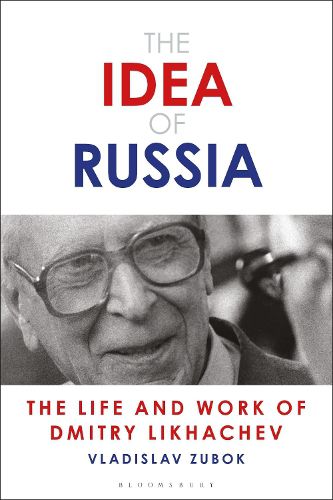Readings Newsletter
Become a Readings Member to make your shopping experience even easier.
Sign in or sign up for free!
You’re not far away from qualifying for FREE standard shipping within Australia
You’ve qualified for FREE standard shipping within Australia
The cart is loading…






Dmitry Likhachev (1906-1999) was one of the most prominent Russian intellectuals of the twentieth century. His life spanned virtually the entire century - a tumultuous period which saw Russia move from Tsarist rule under Nicholas II via the Russian Revolution and Civil War into seven decades of communism followed by Gorbachev’s Perestroika and the rise of Putin. In 1928, shortly after completing his university education, Likhachev was arrested, charged with counter-revolutionary ideas and imprisoned in the Gulag, where he spent the next five years. Returning to a career in academia, specialising in Old Russian literature, Likhachev played a crucial role in the cultural life of twentieth-century Russia, campaigning for the protection of important cultural sites and historic monuments. He also founded museums dedicated to great Russian writers including Dostoevsky, Pushkin and Pasternak. In this, the first biography of Likhachev to appear in English, Vladislav Zubok provides a thoroughly-researched account of one of Russia’s most extraordinary and influential public figures.
$9.00 standard shipping within Australia
FREE standard shipping within Australia for orders over $100.00
Express & International shipping calculated at checkout
Dmitry Likhachev (1906-1999) was one of the most prominent Russian intellectuals of the twentieth century. His life spanned virtually the entire century - a tumultuous period which saw Russia move from Tsarist rule under Nicholas II via the Russian Revolution and Civil War into seven decades of communism followed by Gorbachev’s Perestroika and the rise of Putin. In 1928, shortly after completing his university education, Likhachev was arrested, charged with counter-revolutionary ideas and imprisoned in the Gulag, where he spent the next five years. Returning to a career in academia, specialising in Old Russian literature, Likhachev played a crucial role in the cultural life of twentieth-century Russia, campaigning for the protection of important cultural sites and historic monuments. He also founded museums dedicated to great Russian writers including Dostoevsky, Pushkin and Pasternak. In this, the first biography of Likhachev to appear in English, Vladislav Zubok provides a thoroughly-researched account of one of Russia’s most extraordinary and influential public figures.